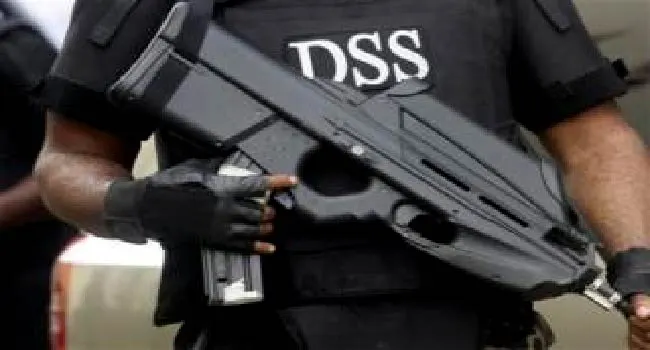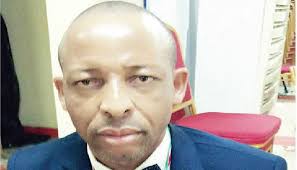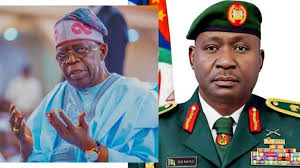
Top Directors of the Department of State Services (DSS) from across the North-West geopolitical zone have converged on Kaduna for a high-level security conference aimed at addressing the escalating threat of banditry, kidnapping, and other violent crimes plaguing the region.
The strategic meeting, which commenced on Thursday, is taking place at the DSS office complex along Maj.-Gen. Muhammadu Buhari Way in Kaduna. It brought together all DSS directors from Kebbi, Kano, Kaduna, Jigawa, Katsina, Sokoto, and Zamfara states.
The conference was formally declared open by Kaduna State Governor, Senator Uba Sani, represented by the Commissioner for Internal Security and Home Affairs, Sule Shuaibu (SAN).
Also in attendance were representatives from the Federal Capital Territory, Niger, and Plateau states, as well as heads and senior officials of key security agencies including the Nigerian Army, Nigerian Air Force, Nigeria Police Force, Nigeria Security and Civil Defence Corps, Federal Road Safety Corps, and Nigeria Customs Service.
Governor Sani, in his opening remarks, underscored the critical role of intelligence-led operations in combating insecurity, stressing that seamless collaboration among security agencies remains the most effective weapon against violent threats across the North-West.
He described the DSS as “the invisible backbone of Nigeria’s internal stability”, praising the agency for its consistent efforts in safeguarding democracy and disrupting emerging threats.
“This conference offers an invaluable platform for reflection, coordination, and strategic renewal,” the governor noted.
Sani highlighted Kaduna State’s long-standing commitment to intelligence-driven security management, citing its partnership with the DSS and other agencies in identifying and neutralising threats—from violent extremism to sabotage and misinformation.
He urged security leaders to move beyond traditional intelligence techniques and embrace modern approaches anchored on advanced analytics, technology, inter-agency trust, and data-driven systems.
He further emphasised the importance of non-kinetic methods such as community engagement, preventive diplomacy, conflict resolution, and counter-narratives.
“Peace must be pursued through justice, development, and inclusion,” he added.
The Emir of Zazzau, Ambassador Ahmed Bamalli, who also attended the meeting, commended the DSS for its strong cooperation with traditional institutions in resolving local disputes and ensuring grassroots stability.
He revealed that, with DSS support through alternative dispute resolution mechanisms, the Zazzau Emirate had successfully cleared over 2,000 cases from its courts in just two years.
The Emir also praised the agency’s vetting of district and village heads, noting that the process had helped expose and remove traditional officials found unfit to serve their communities.


